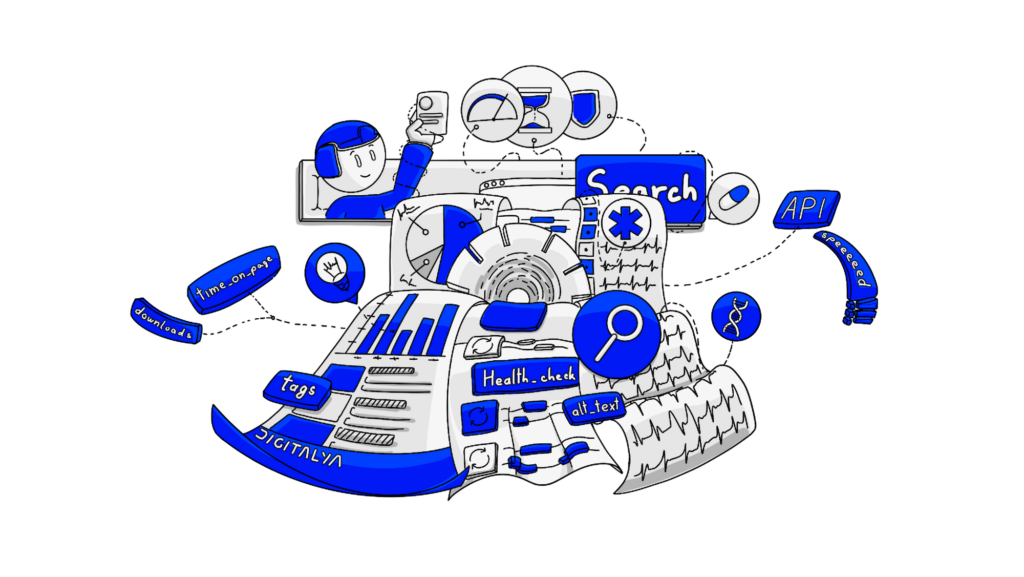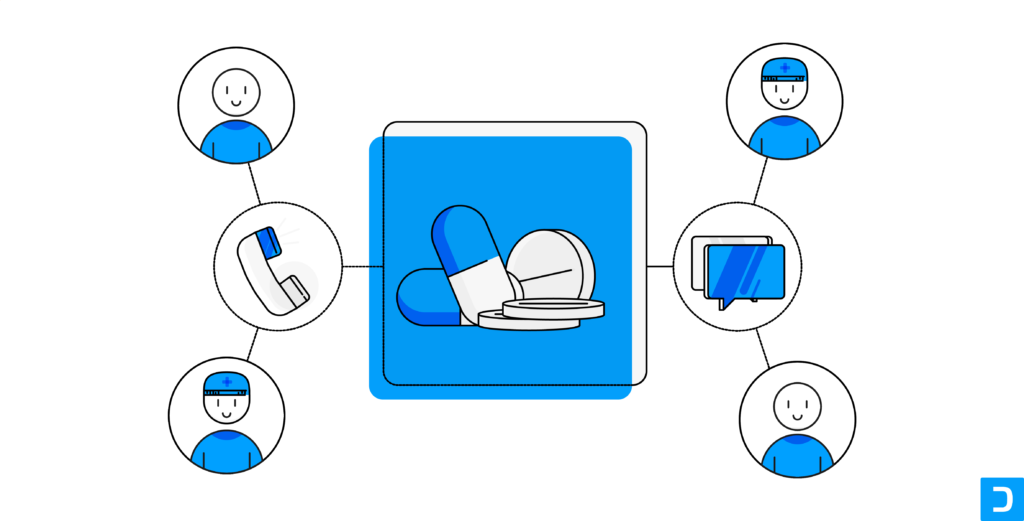In today’s interview, Roland Peer, Managing Partner at 2assistU, is going to give us some insights into how technology is transforming the aviation industry and how a startup can contribute to making the aviation industry in Switzerland more safe and secure. And this is thanks to software made in Romania.
So let’s get down to business and see what Roland thinks, and how are things in his industry.
Mădălina: Hi Roland! We’re really happy to have you here. Please tell us some things about yourself.
Roland: Hi. I always had a fascination for aircraft and travel, and I know a few languages, so I found the aviation industry quite interesting. I’m also fascinated by the technique. Why is an aircraft taking off? How is this working?
In time I turned my passion into a career. For five years, I’ve been working with 2assistU. Before, I worked as an IT manager for a Swiss airline for seven years, where I developed IT systems mostly for the flight operations department (crew briefing, crew roster, communication tools, etc.) together with a team of developers.
The aviation industry is not for everyone. There is a saying: If you like it, then you will stay, if not, you will leave after one, or two years. You have to adapt all the time to new regulations and pricing models. It is quite challenging and tactic sometimes. But still, I was fascinated, and I stayed.
M: Is this a passion from your childhood?
R: Well, I had this idea once to become a flight attendant. One day I gave it a shot, and due to my programming skills, I received an offer to join an IT project within the aviation industry. That’s how I started.
M: It is quite awesome that you managed to do something that you wished for a long time.
R: Yes, and it was pretty awesome too. Half of the time, I was flying, and the rest, I was doing the IT job.
M: What can you tell us about 2assistU? How do you help other businesses?
R: 2assistU has helped aviation companies improve their quality and especially their quality control for quite some years now. We assist them in training matters, corporate management, and project management, as well as we guide companies through certification processes (ISO, ISAGO, etc.). In addition, we train aviation and other companies (hotels, hospitals, etc.) in crisis and emergency management.
M: Let’s talk a little bit about startups and technology. How did the teampulse idea come to life?
R: What 2assistU observed over the years is that most companies struggle with performing quality checks and measuring their quality. And quality is important to keep up a safe and secure aviation business. So we thought of a solution to support us in this matter.
teampulse came to life out of a persistent need. We got to the conclusion that the aviation industry, even the SMEs, cannot continue with all the paperwork while handling audits, and therefore we thought of an app that will streamline the whole process.
Now teampulse will help aviation companies digitalize the processes that have been done before with a lot of paper. It starts with the audit planning and the creation of checklists, then the conduction of the audit, and ends with the tracking of the corrective measurements. Summarized, teampulse will not only save money; it will primarily help the aviation industry become more safe and secure.
In addition to the quality assurance system, the app also has a CRM, that helps companies manage the contacts in the database. The system simply supports you while performing your job by keeping you updated with dates, timelines, contacts, communication, etc. In a nutshell: auditors have one system that keeps all data, and they will no longer have to work with Excel sheets, outlook calendars, and emails stored in different places.
Since the beginning, we have preferred to develop our own software, mostly because it can be customized and include only the features that we really need. Hence, that’s why teampulse has only the features that a small business needs.
M: So you have plans of scaling the business.
R: Absolutely. In the beginning, we want to address aviation companies that come from manual processes to automated ones.
There are quality systems on the market that are quite sophisticated, in terms of functionalities but also, cost-wise. They cost you a lot. And as a small company, you can’t afford such a system. That’s why we came up with teampulse, which does not provide all the functionalities that other systems are offering, but our expertise has shown that, as an SME, you don’t need them. If you have a giant system and you only use 10% of the functionalities provided, you’re also gonna pay for the other 90% of the functions. Yet you’re never gonna use them.
In addition, if employees have to work with systems they do not understand since, they’re so complicated in the user design, they will not use these systems at all. That’s why we said we’d go with the simple approach, we’ll develop a simple system, and if a company runs across an issue and needs another functionality, we’ll simply do customization and further development.
M: In regards to teampulse and technology in the aviation industry, what role do you think it plays overall?
R: Technology is very, very important in the aviation industry because nowadays everything is electronic: tickets, boarding passes, all passport data. 2assistU provides a quality system to perform audits and finally measure the quality. That’s why we have teampulse.
To be able to detect problems, errors, or misbehaviors that need to be changed, and to analyze, after some time, whether the change or a certain process that you implemented still works well.
Technology is a huge factor in this industry, especially in minimizing costs. If you think nowadays, people book flights themselves. Ten, fifteen years ago, you had to call travel agencies to book a ticket.
M: Is there any visible change that you saw during the years that you worked in this industry?
R: Definitely. I can give you an example. Ten years ago, each pilot had crew baggage with him in the cockpit containing paper and books required for the flight. Nowadays, they have tablets with all the information stored on them.
They save up to twenty kilos per person because they don’t need heavy crew bags anymore. Everything which is transported by air needs fuel. If you reduce the weight, even from the cockpit crew, you can easily reduce the consumption of fuel and save money, and the planet, after all.
M: What do you think are the biggest challenges that startups in the aviation industry have, and how do teampulse and 2assistU help them?
R: Firstly, as a startup, costs are a major factor, and if you have a system that saves you manpower by handling paperwork, you’ll minimize costs. Here teampulse definitely helps.
2assistU can also help with course administration since we are providing courses for the aviation industry. We have about 700 people a year that take safety and security courses in order to perform at their work.
For our business, I developed a system that is actually handling the course administration. The booking is done by the client, and the materials for e-learning and the invitations for the participants are sent automatically. All the secretary work is done by the system.
With this solution, we save time and manpower. We can invest the time and money in other, more useful projects. We leave the system to do what nobody likes to do, like having to write ten or twenty-course invitations a day or invoices and keep track of who has paid and all that.
M: What does the name teampulse mean?
R: The name was actually a suggestion from Ovi (Digitalya’s CEO), it was his idea. Firstly it was a simple project name. But there is a meaning behind it: because we see teampulse and quality control as a core, as the heart of a company. So, “Team” comes from collaboration and “pulse” because it’s the beating heart of the company.
M: It’s really nice that you’ve personalized this. It’s a really good story. So, close to the end of this interview is there any advice you’d like to give to entrepreneurs nowadays in this industry or in any industry?
R: Well, some people think it’s simple to open a business in the aviation industry. But you really need a good network; otherwise, you are pretty lost. You need to establish a good network, have a clear business case, know your assets and maybe, also know your niche.
Another thing you should keep in mind is to track your costs. This is definitely very important.
M: Yes, new startups appear almost daily, and really, really few of them succeed.
R: Exactly. Sometimes I wonder if all these applications that are now on the market or available for download will still be there in five years. For each and every use case, there is an app available. And I really wonder if they will succeed and still be on the market in 5 years. The IT industry is changing so much.
To conclude: even if you think your product is good today, also of use and important, I think you have to ask yourself if the product will still be required in the future, or how to adapt so that it will respond to the challenges of tomorrow.
M: So they should have a vision for the future? In 5 years, 10 years?
R: Exactly. I’m not sure if nowadays you can calculate or foresee what’s in 10 years, but at least you need a clear focus on what you are doing. And you have to think whether the work you invest will pay off in any way.
M: How did Digitalya help you in developing teampulse?
R: Well, Digitalya helped us with a lot of expertise from the IT side, the technology part. And also the user interface. Digitalya helped, well, built us the whole system. What was nice was that we provided them with an idea, a document that outlined our ideas of a quality system and how we think the product should work. All the rest was done by the Digitalya team.
In addition, I was personally convinced of the Digitalya strategy to give IT students, or in other words, young IT talents, the opportunity to participate in our project and to contribute knowledge but also to learn how a project is led. And the enthusiasm and effort we saw from them was simply amazing.
M: That’s great; thanks a lot, Roland. It was really nice having you here, and we’re confident that our readers will highly appreciate your help.
Startups bring innovation into various industries, and technology is their magic wand. In this interview, we saw how the aviation industry has evolved in the past years and what are the challenges that an early-age business should take into consideration when entering it. If you’re curious about our future interviews, don’t forget to subscribe to our blog.










